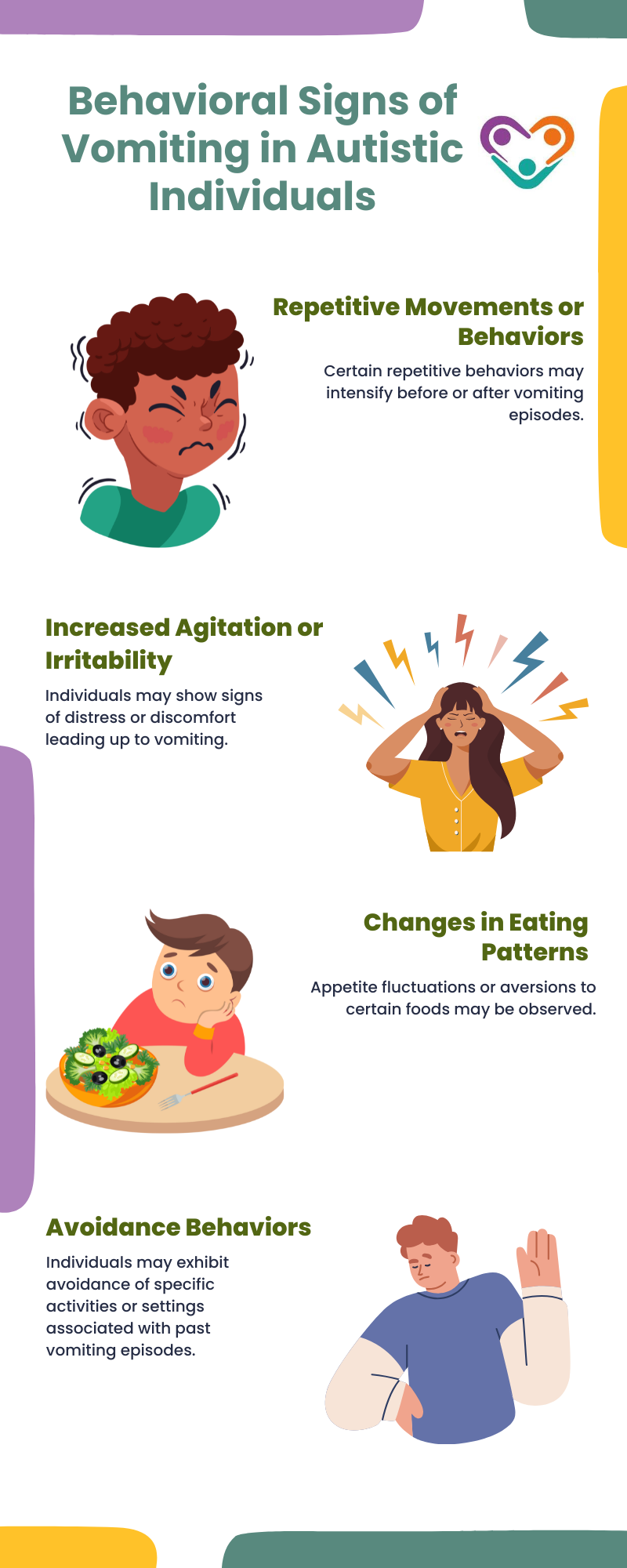Five practical strategies Autism Behavioral Therapy techniques improve coping skills
Five practical strategies Autism Behavioral Therapy techniques improve coping skills
Blog Article
Secret Indicators and Signs And Symptoms to Recognize in People With Behavioral Autism
When you experience a person with behavioral autism, identifying key indications and signs and symptoms is vital. You might observe obstacles in social interactions and communication, along with a solid need for regimens. Additionally, sensory level of sensitivities can lead to frustrating experiences. Understanding these attributes can improve your assistance and interventions, but there's more to uncover about how these actions materialize in day-to-day circumstances. Let's discover what these indicators truly resemble.
Obstacles in Social Communications
When you communicate with a person on the autism spectrum, you could discover they deal with social hints and communication. These difficulties can make social interactions feel frustrating for them. You might see them staying clear of eye call or standing as well close or also far throughout discussions, which can produce misconceptions. They may not pick up on body language or faces, making it harder for them to assess how others are really feeling.
When they do engage, they could talk about their interests in excellent detail without observing if you're interested. Understanding these difficulties can help you come close to interactions with compassion and persistence, fostering a much more comfy atmosphere for both of you.
Problem With Verbal and Non-Verbal Interaction

Non-verbal communication can be a lot more difficult. You may see a lack of eye contact or restricted usage of gestures, which can make communications feel unpleasant. Faces may not constantly align with the conversation, bring about complication regarding their feelings. Recognizing these indicators is vital, as it assists you much better assistance and involve with people on the autism spectrum. By comprehending their communication challenges, you can foster more meaningful connections and give a much more supportive atmosphere.
Recurring Behaviors and Routines
Interaction difficulties typically accompany various other indicators of autism, such as repetitive actions and a solid choice for routines. You may see that individuals with autism often engage in specific, repeated actions, like hand-flapping, rocking, or duplicating expressions. These behaviors can provide comfort and a feeling of control in a frequently frustrating world.
When they comply with an organized schedule,Routines are just as important; lots of individuals flourish. You might find that changes to these regimens can bring about substantial distress. For instance, if they have a day-to-day ritual of eating breakfast at a specific time or following a certain path to college, any type of interruption can cause stress and anxiety.
Identifying these patterns aids you comprehend their behavior and provide assistance. By fitting their requirement for regular and allowing repetitive activities, you can produce a much more comfy environment that reduces their challenges.
Sensory Sensitivities

Typical Sensory Triggers
Sensory level of sensitivities can significantly affect daily life for people with autism, as particular stimulations usually set off frustrating responses. Usual sensory triggers include loud noises, bright lights, and strong scents. Comprehending these triggers can assist you handle your environment better.
Behavioral Reactions Explained
Recognizing your behavior reactions to sensory level of sensitivities is important, as they frequently disclose exactly how you interact with the globe. You could discover that specific noises, lights, or textures overwhelm you, resulting in anxiety or pain. When confronted with these stimuli, you may withdraw, cover your ears, and even respond aggressively. These reactions aren't simply peculiarities; they're your method of handling overstimulation. You might additionally locate on your own seeking particular sensory experiences, like deep stress or peaceful settings, to assist ground on your own. Identifying these patterns helps you comprehend your demands much better and can guide just how you communicate them to others. By recognizing your sensory level of sensitivities, you can work towards creating an atmosphere that feels extra workable and comfy for you.
Coping Strategies Summary
Recognizing your sensory level of sensitivities is just the very first step; now it's time to discover coping techniques that can help you manage those experiences successfully. Beginning by producing a sensory toolkit tailored to your demands. This can consist of noise-canceling headphones, fidget playthings, or calming scents. Developing an organized investigate this site regimen can also provide predictability, decreasing stress and anxiety around sensory overload. When you really feel overwhelmed, take breaks in a peaceful room to regroup. Practicing mindfulness methods such as deep breathing can help ground you in the moment. Additionally, connect your demands with those around you; having supportive good friends and family can make a substantial distinction. Remember, locating what functions ideal for you may take some time, so be open and patient to trying brand-new methods.
Limited Rate Of Interests and Emphasis
While numerous individuals create a vast array of interests, those with autism frequently demonstrate limited rate of interests and an intense concentrate on details subjects. You might notice that a person with autism can spend hours delving right into their favored topic, whether it's a certain sort of train, a specific motion picture, or a clinical concept. This extreme emphasis isn't simply a hobby; it can come to be a main part of their Find Out More identification and social interactions.
You might discover that conversations focus on these interests, and they may have a hard time to participate in broader topics. For them, these focused passions provide comfort and a feeling of mastery. While it is essential to urge expedition of brand-new subjects, respecting their enthusiasms is similarly essential. By recognizing and acknowledging these restricted rate of interests, you can cultivate a helpful setting where they feel valued and recognized, allowing for more meaningful connections and communications.
Emotional Law Difficulties
People with autism often face obstacles in psychological guideline, which can be affected by their intense concentrate on particular passions. You might see that when an individual is deeply participated in a recommended activity, they can experience strong emotions, whether enjoyment or irritation. When points don't go as prepared., this intensity often makes it difficult for them to move equipments or handle their sensations - Autism Behavioral Therapy.

Irregularity in Developing Turning Points
When it involves developmental landmarks, you'll see that individuals with autism typically show a wide variety of irregularity. Some might strike milestones in a timely manner, while others could hang back or progression at a various pace. For example, you may see a youngster master language skills however battle with social interactions. This variance can be complex, as traditional standards do not always apply. try here
It's necessary to acknowledge that each person's journey is unique. Observing these patterns can help you recognize their staminas and requires much better.
Often Asked Concerns
How Is Autism Detected in Kid and Adults?
To detect autism in adults and youngsters, experts evaluate habits, communication abilities, and social communications. They typically use standard examinations, interviews, and observations to figure out if a private meets the standards for autism spectrum condition.
Are There Various Sorts Of Autism Range Disorders?
Yes, there are different kinds of autism spectrum conditions, including Asperger's disorder and prevalent developing disorder-not otherwise defined. Each type differs in severity and attributes, so recognizing these distinctions can aid you much better assistance individuals with autism.
What Treatments Are Effective for People With Autism?
When considering efficient treatments for individuals with autism, you'll discover choices like Applied Habits Analysis, speech treatment, and occupational treatment. Each method can help boost communication, social skills, and day-to-day functioning tailored to individual needs.
Can Individuals With Autism Lead Independent Lives?
Yes, individuals with autism can lead independent lives. With the ideal assistance, skills training, and resources, you can aid them develop self-sufficiency, handle day-to-day jobs, and thrive in different atmospheres, cultivating their independence.
How Can Households Assistance Enjoyed Ones With Autism?
You can sustain your enjoyed ones with autism by creating a structured atmosphere, urging their passions, practicing perseverance, fostering communication, and promoting social skills. Celebrate their achievements, despite just how little, and build an encouraging neighborhood.
Although numerous individuals on the autism range can understand and utilize language, they often encounter considerable challenges with both spoken and non-verbal interaction. Recognizing these signs is essential, as it helps you better assistance and involve with people on the autism range. You may discover that individuals with autism usually involve in specific, repetitive activities, like hand-flapping, shaking, or repeating phrases.Sensory sensitivities can significantly impact daily life for people with autism, as specific stimuli usually trigger frustrating responses.When it comes to developmental milestones, you'll see that individuals with autism often show a wide array of irregularity.
Report this page